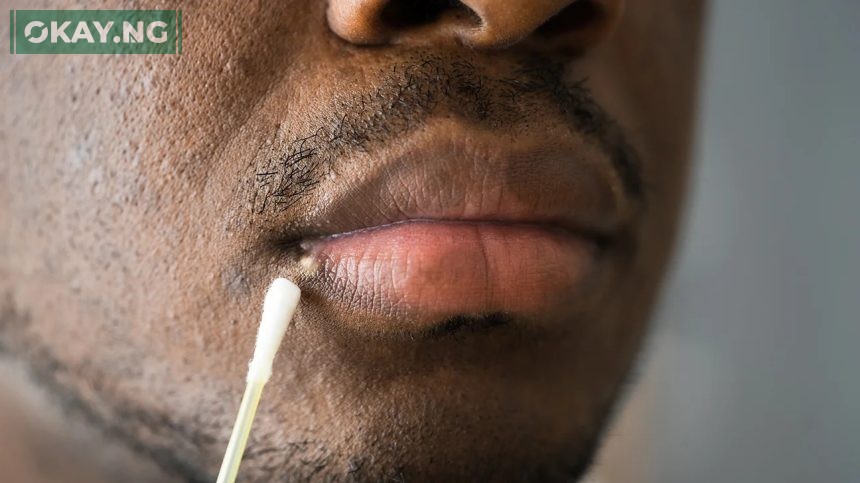Herpes is a common viral infection that affects millions of people around the world. It can cause oral and genital sores, as well as other symptoms.
In this article, we will answer some frequently asked questions about herpes, such as:
What is herpes and what are the types of herpes?
Herpes is an infection caused by the herpes simplex virus (HSV), which belongs to a family of viruses that also includes chickenpox, shingles, and mononucleosis. There are two main types of HSV: HSV-1 and HSV-2.
- HSV-1 usually causes oral herpes, which is characterized by cold sores or fever blisters on or around the mouth or face. However, HSV-1 can also cause genital herpes if it is transmitted through oral sex.
- HSV-2 usually causes genital herpes, which is characterized by sores on or around the genitals, anus, buttocks, or inner thighs. However, HSV-2 can also cause oral herpes if it is transmitted through oral sex.
Both types of HSV can cause recurrent outbreaks of sores, which may vary in frequency, severity, and duration. Some people may have no symptoms or very mild symptoms, while others may have more severe or frequent outbreaks.
What causes herpes and how is it transmitted?
HSV is a contagious virus that can be transmitted through direct contact with sores or fluids from an infected person. The virus can also be transmitted when there are no visible sores, through a process called asymptomatic shedding, which means that the virus can be present on the skin or mucous membranes of an infected person without causing any symptoms.
The most common ways of transmitting HSV are:
- Having vaginal, anal, or oral sex with someone who has herpes.
- Sharing personal items, such as lip balm, razors, or towels, with someone who has herpes.
- Kissing or touching the mouth or face of someone who has oral herpes.
- Touching the genitals or anus of someone who has genital herpes.
HSV is not transmitted through blood, saliva, urine, or semen, unless they contain traces of sores or fluids from an infected person. HSV is also not transmitted through casual contact, such as hugging, shaking hands, or sharing utensils, with someone who has herpes.
What are the symptoms of herpes and how is it diagnosed?
The symptoms of herpes may vary depending on the type of HSV, the site of infection, and the immune system of the person. The first outbreak of herpes usually occurs within 2 to 20 days after exposure to the virus, and may last for 2 to 4 weeks. The first outbreak is often the most severe and may be accompanied by flu-like symptoms, such as fever, headache, muscle aches, or swollen glands.
The typical symptoms of herpes are:
- Small, fluid-filled blisters that break open and form painful sores or ulcers on or around the mouth, face, genitals, anus, buttocks, or inner thighs.
- Tingling, itching, burning, or numbness in the affected area before the appearance of blisters.
- Difficulty urinating, especially if the sores are near the urethra.
- Vaginal discharge or bleeding, especially if the sores are inside the vagina.
Some people may have no symptoms or very mild symptoms that go unnoticed or are mistaken for other skin conditions, such as pimples, ingrown hairs, or insect bites. However, they can still transmit the virus to others12.
The diagnosis of herpes is usually based on the appearance of the sores and the history of exposure to the virus. However, the only way to confirm the diagnosis is by taking a sample of fluid from the sore and testing it for the presence of HSV. This test can also determine the type of HSV and the viral load, which are important factors for the treatment and prognosis of herpes.
What are the treatments for herpes and how can it be prevented?
There is no cure for herpes, but there are treatments that can help reduce the symptoms, frequency, and duration of outbreaks, as well as the risk of transmission to others. The main treatments for herpes are:
- Antiviral medications, such as acyclovir, valacyclovir, or famciclovir, which can be taken orally or applied topically to the sores. These medications can be taken daily as a suppressive therapy to prevent outbreaks, or as an episodic therapy to treat outbreaks when they occur.
- Pain relievers, such as ibuprofen, acetaminophen, or aspirin, which can help ease the discomfort and inflammation caused by the sores.
- Cold compresses, warm baths, or salt water rinses, which can help soothe the affected area and promote healing.
- Avoiding triggers, such as stress, fatigue, illness, sun exposure, or menstrual periods, which can provoke or worsen outbreaks.
- Practicing good hygiene, such as washing hands frequently, keeping the affected area clean and dry, and avoiding touching or scratching the sores, which can prevent infection and spread of the virus.
The prevention of herpes is mainly based on avoiding exposure to the virus and reducing the risk of transmission to others. Some preventive measures are:
- Using condoms or dental dams during sexual activity, which can reduce but not eliminate the risk of contracting or transmitting herpes.
- Abstaining from sexual activity when there are visible sores or symptoms of an outbreak, which can significantly reduce the risk of transmission.
- Informing sexual partners about the status of herpes and the possibility of asymptomatic shedding, which can help them make informed decisions and take precautions.
- Getting tested for herpes and other sexually transmitted infections (STIs), which can help detect and treat infections early and prevent complications.
- Getting vaccinated for other viral infections, such as chickenpox, shingles, and mononucleosis, which can lower the risk of developing herpes or having more severe outbreaks.
What are the complications of herpes and what is the outlook for people with herpes?
Herpes is usually a benign and manageable condition, but it can sometimes cause serious complications, especially in people with weakened immune systems, such as those with HIV, cancer, or organ transplants. Some of the possible complications of herpes are:
- Neonatal herpes, which is a rare but life-threatening infection that can affect newborns who are exposed to HSV during delivery. Neonatal herpes can cause brain damage, blindness, deafness, or death in infants.
- Herpetic keratitis, which is an infection of the eye that can cause pain, redness, blurred vision, or blindness in severe cases.
- Herpetic whitlow, which is an infection of the finger or nail that can cause swelling, pain, pus, or nail loss.
- Herpetic encephalitis, which is an inflammation of the brain that can cause fever, headache, confusion, seizures, or coma.
- Herpetic meningitis, which is an inflammation of the membranes that cover the brain and spinal cord that can cause fever, headache, stiff neck, or sensitivity to light.
- Disseminated herpes, which is a widespread infection that can affect multiple organs, such as the liver, lungs, or kidneys, and can cause shock, organ failure, or death.
The outlook for people with herpes depends on several factors, such as the type of HSV, the frequency and severity of outbreaks, the response to treatment, and the presence of other medical conditions. Most people with herpes can lead normal and healthy lives, as long as they follow their treatment regimen, practice preventive measures, and monitor their symptoms. However, some people may experience psychological distress, such as anxiety, depression, or stigma, due to the chronic and incurable nature of herpes. Therefore, it is important to seek professional help, join support groups, or talk to trusted friends or family members, if needed.
Herpes is a common viral infection that can cause oral and genital sores, as well as other symptoms. It can be transmitted through sexual or non-sexual contact, even when there are no visible sores. There is no cure for herpes, but there are treatments that can help manage the condition and prevent complications. People with herpes can live normal and healthy lives, as long as they take care of themselves and their partners.













